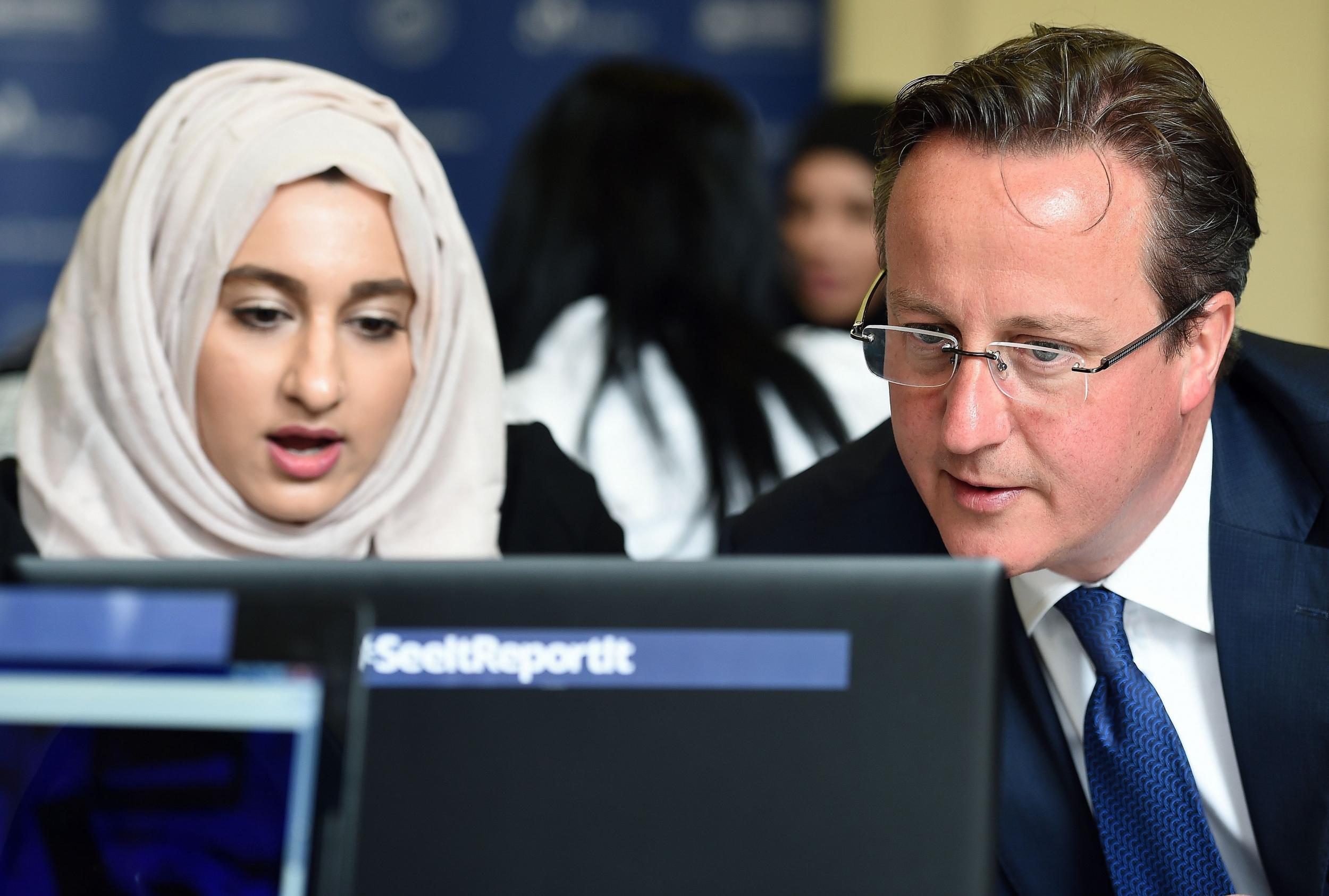'Do such mosques exist?' David Cameron accused of McCarthyism over extremism plans by UK's biggest Muslim group
Muslim Council of Britain says plans to close mosques have echoes of America's infamous scaremongering of communism in the 1950s

Your support helps us to tell the story
From reproductive rights to climate change to Big Tech, The Independent is on the ground when the story is developing. Whether it's investigating the financials of Elon Musk's pro-Trump PAC or producing our latest documentary, 'The A Word', which shines a light on the American women fighting for reproductive rights, we know how important it is to parse out the facts from the messaging.
At such a critical moment in US history, we need reporters on the ground. Your donation allows us to keep sending journalists to speak to both sides of the story.
The Independent is trusted by Americans across the entire political spectrum. And unlike many other quality news outlets, we choose not to lock Americans out of our reporting and analysis with paywalls. We believe quality journalism should be available to everyone, paid for by those who can afford it.
Your support makes all the difference.David Cameron’s new strategy to tackle extremism is “flawed” and plans to ban people from mosques have “McCarthyist undertones”, Britain’s largest Muslim organisation has said.
The Prime Minister unveiled further measures to protect children and youngsters from being radicalised in a speech on Monday, including plans to close down mosques where extremist meetings have taken place.
However, the Muslim Council of Britain challenged Mr Cameron, asking: “Do such mosques really exist?”
Dr Shuja Shafi, the organisation’s secretary general, questioned how proposals to ban extremists from mosques and from using the internet would work in practice.
“By whose definition are they deemed to be extremist?” he asked. “We cannot help also detect the McCarthyist undertones in the proposal to create blacklists and exclude and ban people deemed to be extremist,” Dr Shafi added.
He said the Government's counter-terrorism strategy was based on "fuzzy conceptions of British values" and risked "alienating" the very Muslim communities that are needed to confront the likes of Isis and Al-Qaeda.
The Ramadhan Foundation added to the criticism, accusing Mr Cameron of treating Muslims as "aliens to be bashed from time to time for political gains" with his newcounter-extremism strategy. It said the plans would not succeed because of "little support from the Muslim community".
Its chief executive, Mohammed Shafiq, dismissed Mr Cameron's new approach as a "PR exercise". In a scathing attack on the Government's plans, he said: "What we require now is for British Muslims to be engaged without prejudice and a new approach adopted that will see Muslims as equal citizens and not some sort of aliens to be bashed from time to time for political gains."
Mr Cameron laid out his government’s plans to treat people convicted of terrorism or extremism like sex offenders, who will be automatically barred from working with children and vulnerable people.
“I have said before that defeating Islamist extremism will be the struggle of our generation. It is one of the biggest social problems we need to overcome,” Mr Cameron said.
“We know that extremism is really a symptom; ideology is the root cause – but the stakes are rising and that demands a new approach.
“So we have a choice – do we choose to turn a blind eye or do we choose to get out there and make the case for our British values?”
He called for a “wide range” of civil society groups to “build and sustain a compelling online presence” to ensure extremist voices are not the only ones heard.
An estimated 700 extremists have left Britain to join so-called Islamic State in Syria, many of whom have been youngsters.
Around half have returned to the UK and ministers say it is time to step up the fight against extremist propaganda to prevent more making the journey.
The new plans will introduce the ability to ban radical preachers from posting material online, while powers for parents to withdraw passports from their children will be extended to all youngsters under the age of 18. In July he announced plans to apply it to children under 16.
Mr Cameron promised to help Muslim communities with the battle against extremism, but said “far more people” needed to “come forward” from the “silent majority” in Muslim communities to help teach a tolerant and inclusive Islam that was in tune with British values.
But Mr Shafi said ministers were too focused on Muslims and plans to put more emphasis on the teaching of British values were based on ambiguous definitions of what they meant.
“Today’s ‘one nation’ counter-extremism strategy continues down a flawed path, focusing on Muslims in particular, and are based on fuzzy conceptions of British values," he said.
"It risks being counter-productive by alienating the very people needed to confront Al-Qaeda or Daesh-related terrorism: British Muslim communities.”
Join our commenting forum
Join thought-provoking conversations, follow other Independent readers and see their replies
Comments